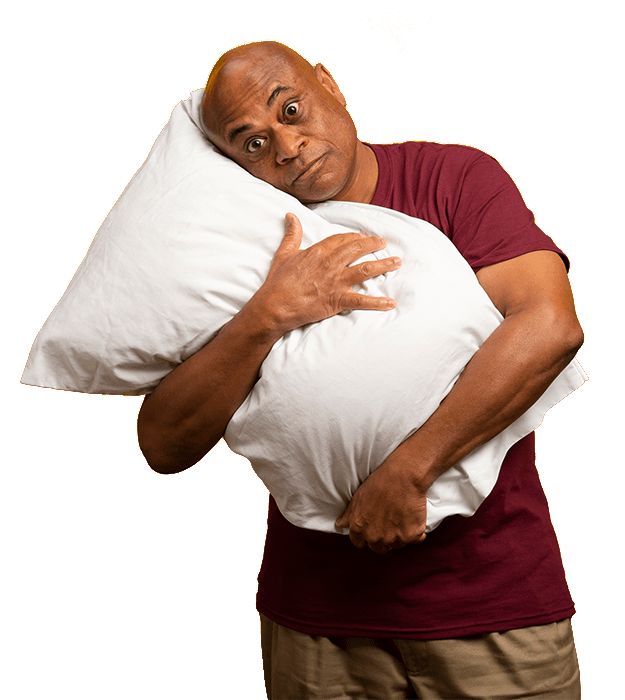Sleep Apnea FAQs
Sleep Apnea and the associated risks can be confusing and daunting. Learning more about sleep apnea and how it’s treated will help you manage the condition, decrease complications and improve your quality of sleep. Below are some common questions and answers to help you understand more about sleep apnea.

How common is sleep apnea?
You are not alone. According to the American Sleep Apnea Association, sleep apnea affects around 22 million Americans, and an estimated 80% of those individuals are undiagnosed.
What causes sleep apnea?
Sleep apnea can occur when your airway becomes obstructed. Your tongue and throat muscles may relax and block your windpipe or you might have a large tongue or tonsils that can increase your risk of developing the condition. Smoking, drinking alcohol, having an extended jaw or excess weight can also contribute to sleep apnea.
Is sleep apnea hereditary?
Sleep apnea does have a hereditary component since our genes define the construction of our bodies. Some people are born with a narrower airway than others or have more excess tissue in the airway. A narrower airway or excess tissue, can cause a person to have a blockage form from relaxed tissues during sleep, and the blockage is what causes sleep apnea.
Can sleep apnea be cured?
There isn’t a real “cure” for sleep apnea, but it can be treated to minimize the health impacts. Treatment counteracts symptoms and prevents your condition from getting worse.
What are the symptoms of sleep apnea?
One of the most common symptoms of sleep apnea is snoring. It’s important to know that not all people who snore have sleep apnea. Your partner may notice your breathing occasionally stops for brief periods of time throughout your sleep. Other symptoms involve excessive daytime sleepiness and morning headaches.
Can I die from sleep apnea?
Sleep apnea doesn’t cause a person to die. However, sleep apnea increases your risk of heart attack or stroke which can be fatal.
What should I do if I think I have sleep apnea?
A sleep test is the best way to determine if you have a sleep disorder. Taking a home sleep test is the most convenient and cost-efficient way to provide the doctor with information about how you sleep and breathe. This information will help the doctor determine your diagnosis and treatment options.
What happens if I don’t get treatment for my sleep apnea?
You will have an increased risk for:
- High blood pressure
- Heart disease and heart attack
- Stroke
- Fatigue-related motor vehicle and work accidents
- Decreased quality of life
What is the treatment for sleep apnea?
The most common treatment is positive airway pressure (PAP) therapy. It’s a noninvasive treatment and can help inhibit symptoms when used as prescribed.
How does PAP or CPAP therapy work?
CPAP (Continuous Positive Airway Pressure) provides a gentle flow of positive-pressure air through a facial mask to keep the airway open during sleep. As a result:
- Breathing becomes regular during sleep
- Snoring stops
- Restful sleep is restored
- Quality of life is improved
- Reduced risk for high blood pressure, heart disease, heart attack, stroke and motor vehicle and work accidents are reduced
Is it hard to sleep with a CPAP?
CPAP therapy involves sleeping with a mask over your nose or nose and mouth which is connected to tubing and the CPAP machine. There will be an adjustment period for you to get used to sleeping with a mask, but it’s important to focus on the health benefits when you are struggling. If you continue to have trouble sleeping, call our team to talk about swapping your mask, (888) 831-3991.
How can I get used to wearing my mask?
When you receive your mask, think about it like a new pair of shoes. Wear it while watching TV or reading. It helps to get used to the feel of the mask before trying to sleep with it.
